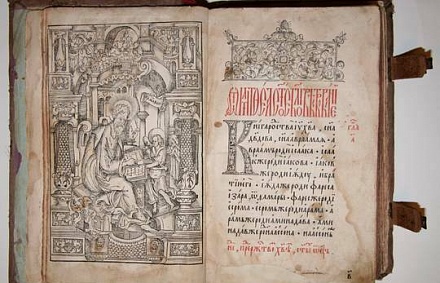
Theophylact Bulgarian. Interpretation of the Gospel of Matthew
Matthew 14:35. The inhabitants of that place, recognizing Him, sent into all the surrounding area and brought all the sick to Him, Matthew 14:36. and asked Him to only touch the hem of His garment; and those who touched were healed.
Since Jesus lived for a long time in the land of Gennesaret, the people, recognizing Him not only by sight, but also by miracles, showed fervent faith, so they wanted to touch the hem of the garment, and those who did this received healing. So you also touch the hem of Christ's garment, that is, the end of His life in the flesh, for if you believe that Christ has ascended, you will be saved, since His flesh is a garment, and the hem of it is the end of His life on earth.
Matthew 15: 1. Then the Jerusalem scribes and Pharisees come to Jesus and say:
Matthew 15: 2. Why do Thy disciples transgress the tradition of the elders? for they do not wash their hands when they eat bread.
Although all countries had scribes and Pharisees, the Jerusalem ones enjoyed the greatest honor. Therefore, they envied most of all, as people are more ambitious. The Jews had a custom, coming from the ancient tradition, - not to eat with unwashed hands. Seeing that the disciples were neglecting this tradition, they thought that they did not value the elders. What is the Savior? Nothing answers them to this, but from His side asks them.
Matthew 15: 3. But he answered them: Why do you also transgress the commandment of God for the sake of your tradition?
Matthew 15: 4. For God has commanded: Honor your father and mother; and: he who curses his father or mother, let him die.
Matthew 15: 5. And you say: if someone tells the father or mother; a gift to God what you would use from me,
Matthew 15: 6. he may not honor his father or his mother; thus you have removed the commandment of God by your tradition.
The Pharisees accused the disciples of transgressing the commandment of the elders; Christ shows that they are transgressing the Law of God. For they taught that the children should not give anything to their parents, but put what they have in the treasury of the temple, since there was a treasury in the temple, into which the one who wanted to threw and was called 'gas'. The treasure was distributed to the poor. So, the Pharisees, urging the children not to give anything to their parents, but to believe that they have it in the treasury in the temple, taught them to say: Father! what you seek to use from me is a gift, that is, dedicated to God. Thus, they, the scribes, shared their property with the children, and the parents, dejected by old age, were left without food. The lenders did this as well. If any of them lent money, and then it turned out that the debtor was not working properly and did not repay the debt, then the lender would say: 'Corvan', that is, what you I owe, there is a gift dedicated to God. Thus, the debtor became, as it were, a debtor to God and repaid the debt against his will. The Pharisees also taught the children to do the same.
Matthew 15: 7. Hypocrites! Isaiah prophesied well about you, saying (Isa.29: 13):
Matthew 15: 8. These people draw near to Me with their lips and honor Me with their lips, but their hearts are far from Me.
Matthew 15: 9. but they honor Me in vain, teaching the doctrines, the commandments of men.
By the words of Isaiah, the Lord shows that in relation to His Father they are the same as they are in relation to Him. Being crafty and by means of crafty deeds removing themselves from God, they spoke the words of God only with their lips. For it is in vain that they honor and pretend that they honor God, who by their deeds dishonor Him.
Matthew 15:10. And calling the people, he said to them: Hear and understand!
Matthew 15:11. not what goes into the mouth defiles a person, but what comes out of the mouth defiles a person.
The Lord does not speak to the Pharisees - for they are incurable - but to the people. By calling them, He shows that He honors them, so that they will accept His teaching, and says “listen and understand,” prompting them to pay attention. Since the Pharisees accused the disciples of eating with unwashed hands, the Lord says regarding food that no food makes a person unclean, that is, it does not defile. If food does not defile, much less eating food with unwashed hands. The inner man is defiled only if he says what he shouldn't. This points to the Pharisees who defile themselves by speaking words out of envy. Pay attention to His wisdom: He does not explicitly order to eat food with unwashed hands, and does not forbid, but teaches something else; do not endure evil speeches from the heart.





